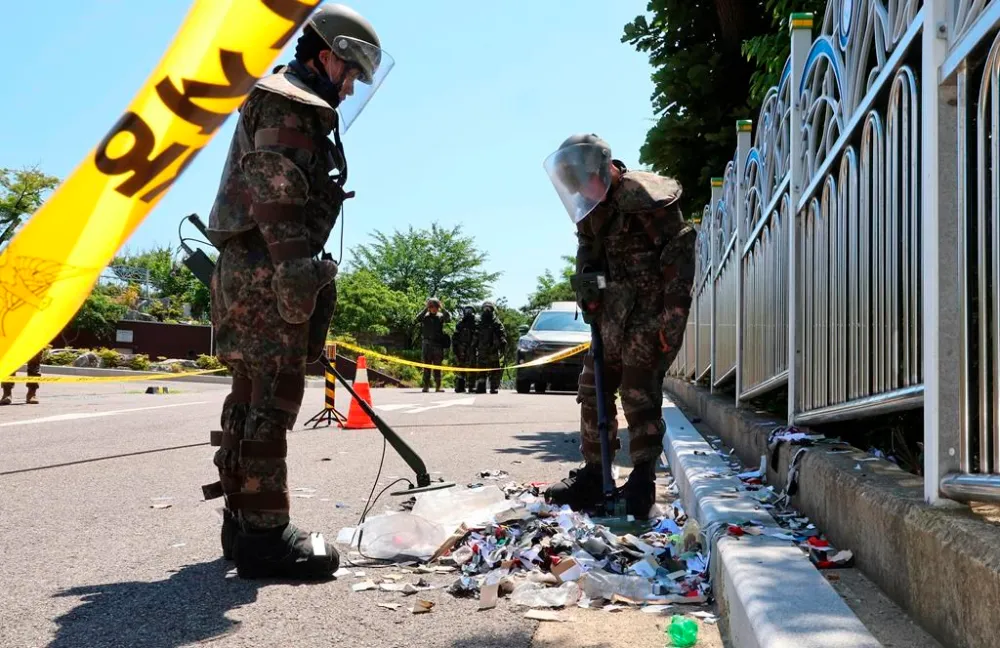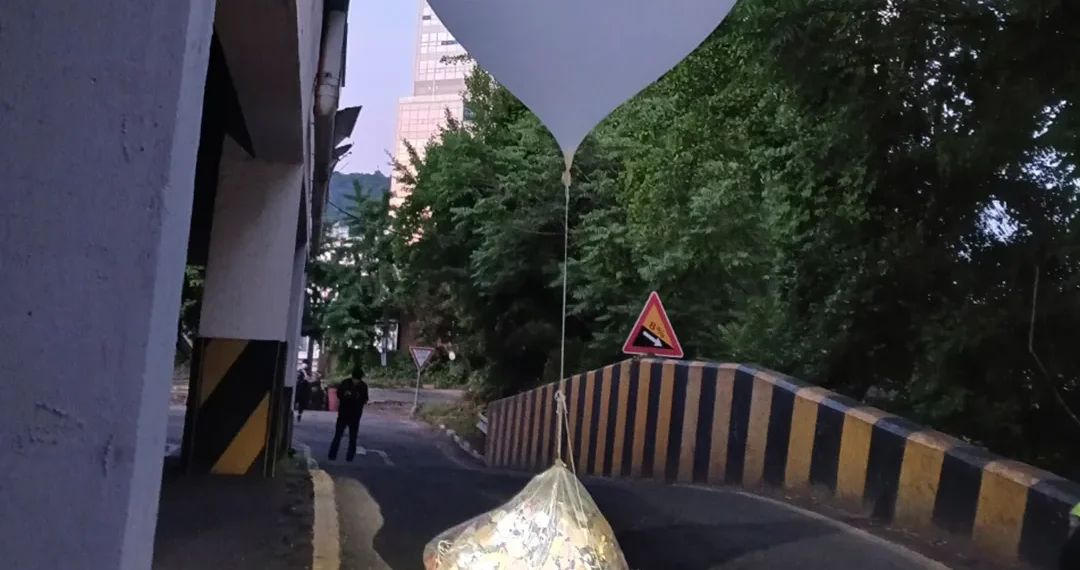Seoul will completely suspend a 2018 military agreement aimed at reducing tensions with nuclear-armed North Korea, the South’s National Security Council announced on Monday, following an incident in which Pyongyang sent hundreds of balloons filled with trash across the border.
The South had previously suspended part of the agreement last year after the North launched a spy satellite into orbit. However, the NSC stated it would now direct the cabinet “to suspend the entire effect of the ‘September 19 Military Agreement’ until mutual trust between the two Koreas is restored.”
In the past week, North Korea has launched nearly a thousand balloons carrying garbage, including cigarette butts and what is believed to be manure, into South Korea. This act was reportedly in retaliation for anti-regime propaganda messages sent by activists in the South.
South Korea condemned the North’s latest provocation as “irrational” and “low-class.” Unlike recent ballistic missile launches, however, the trash campaign does not violate U.N. sanctions against Kim Jong Un’s isolated regime.
North Korea ceased the balloon operation on Sunday, calling it an effective countermeasure but warning that it could resume if deemed necessary.
The 2018 military agreement, signed during a period of warmer relations between the two technically warring countries, aimed to reduce tensions on the peninsula and prevent accidental escalations, particularly along the heavily fortified border.
Following Seoul’s partial suspension of the agreement in November last year as a protest against North Korea’s successful spy satellite launch, the North declared it would no longer honor the deal.
Consequently, Seoul’s NSC described the agreement as “virtually null and void due to North Korea’s de facto declaration of abandonment.” The NSC argued that adhering to the agreement was putting the South at a disadvantage in responding to threats like the balloons.

Maintaining the agreement “is causing significant issues in our military’s readiness posture, especially in the context of a series of recent provocations by North Korea that pose real damage and threats to our citizens,” the NSC stated.
The suspension will allow “military training in the areas around the Military Demarcation Line,” and enable “more sufficient and immediate responses to North Korean provocations.”
The decision requires approval from a cabinet meeting scheduled for Tuesday before it can be implemented.
Relations between the two Koreas are at their lowest point in years, with diplomacy stalled and Kim Jong Un increasing weapons testing and development while South Korea strengthens its ties with Washington, its primary security ally.
Seoul’s move to discard the 2018 tension-reducing deal indicates “that it will not tolerate trash balloons crossing the border, considering international norms and the terms of the truce,” according to Hong Min, a senior analyst at the Korea Institute for National Unification in Seoul.
However, he warned that it could further provoke Pyongyang, given the impossibility of physically blocking the balloons from drifting southward.
South Korea’s Joint Chiefs of Staff reported that the balloons did not contain hazardous materials but had landed in northern provinces, including the capital Seoul and the adjacent Gyeonggi area, home to nearly half of South Korea’s population.
South Korean officials have also suggested that Seoul might respond to the balloons by resuming loudspeaker propaganda campaigns along the border with North Korea. In the past, South Korea has used these broadcasts to disseminate anti-Kim messages into the North, a tactic that has angered Pyongyang and could potentially lead to skirmishes along the border.


